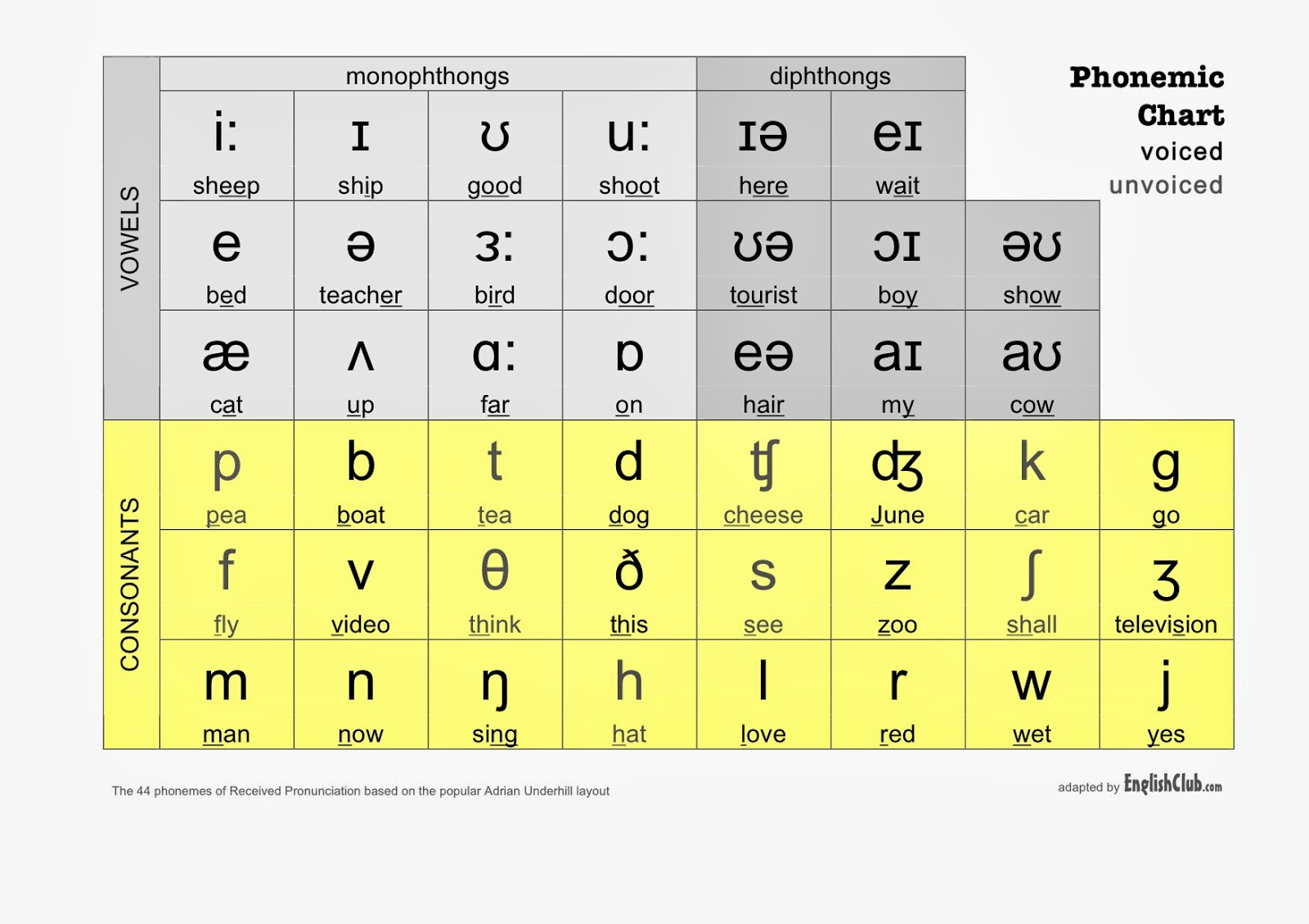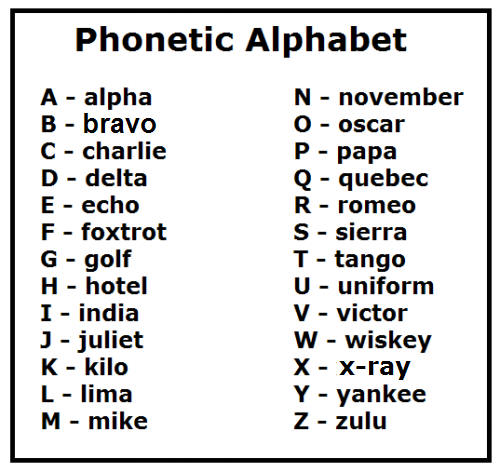Phonetic Alphabet with Examples
The Phonetic Alphabet is a system used to represent the sounds of spoken language in written form. It is based on the International Phonetic Alphabet (IPA) and is used by linguists, language learners, and professionals in various fields. This system provides a standardized way to transcribe sounds, making it easier to pronounce words correctly and understand the pronunciation of foreign or unfamiliar words.
Understanding and using the Phonetic Alphabet can be challenging for many learners. Pronouncing words accurately is a pain point for language learners, as the same letters can have different sounds in different languages. Additionally, there are sounds in some languages that do not exist in others, making the Phonetic Alphabet essential for accurate pronunciation.
The main target of the Phonetic Alphabet is to bridge the gap between written language and spoken language. It allows for precise representation of sounds, making it easier for learners to improve their pronunciation and better understand the sounds of a language. By using the Phonetic Alphabet, learners can overcome the challenges of accurate pronunciation and communicate more effectively.
The Importance of Phonetic Alphabet with Examples
The Phonetic Alphabet is a crucial tool for language learners. It helps them understand the pronunciation of words and improve their speaking skills. Learning the Phonetic Alphabet provides a foundation for language learners to accurately pronounce words, even if they are not familiar with their correct pronunciation. In my personal experience, using the Phonetic Alphabet has helped me overcome pronunciation difficulties and communicate more confidently in foreign languages.
For example, let’s consider the word “phonetic.” In the English alphabet, it is spelled as “p-h-o-n-e-t-i-c.” However, the correct pronunciation is represented by the Phonetic Alphabet as “/fəˈnɛtɪk/.” The symbols in the Phonetic Alphabet accurately depict the sound of each syllable, allowing learners to pronounce the word correctly.

Benefits of Using the Phonetic Alphabet with Examples
The use of the Phonetic Alphabet provides several benefits for language learners. Firstly, it helps learners overcome pronunciation challenges by accurately representing the sounds of a language. Secondly, it enhances listening skills, as learners can connect the written form of a word with its correct pronunciation. Lastly, it improves overall communication skills by ensuring accurate pronunciation and clarity in speech.
One interesting example is the word “schedule.” In some dialects, it is pronounced as “sked-juul,” while in others, it is pronounced as “shed-yool.” By using the Phonetic Alphabet, we can represent these different pronunciations as “/ˈskɛdjʊl/” and “/ˈʃɛdjuːl/,” respectively. This demonstrates how the Phonetic Alphabet helps learners understand and navigate the variations in pronunciation.

Tips for Learning the Phonetic Alphabet with Examples
To effectively learn the Phonetic Alphabet, it is recommended to start by familiarizing yourself with the symbols and their corresponding sounds. Practice transcribing words using the Phonetic Alphabet and compare your transcriptions with native speakers or reliable pronunciation resources. Additionally, listening to recordings or watching videos that provide examples of the Phonetic Alphabet in use can greatly aid in the learning process.

The Phonetic Alphabet is a powerful tool for language learners and professionals alike. It enables accurate pronunciation, improves listening skills, and enhances overall communication. By embracing the Phonetic Alphabet, learners can overcome pronunciation challenges and communicate effectively in various languages.

Famous Quotes and the Phonetic Alphabet with Examples
“The limits of my language are the limits of my world.” – Ludwig Wittgenstein

Provide Practical Tips for Using the Phonetic Alphabet with Examples
1. Practice regularly by transcribing words and comparing your transcriptions with native speakers.
2. Utilize pronunciation resources that provide audio examples of the Phonetic Alphabet.
3. Engage in conversation practice to apply the Phonetic Alphabet in real-life scenarios.
4. Seek feedback from language teachers or experts to improve your pronunciation skills.

Featured Phonetic Alphabet with Examples
Here are a few examples of words transcribed using the Phonetic Alphabet:
- 1. Apple – /ˈæpəl/
- 2. Elephant – /ˈɛlɪfənt/
- 3. Chocolate – /ˈtʃɔklət/
- 4. Water – /ˈwɔːtər/

Share a Personal Opinion on the Benefits of Phonetic Alphabet with Examples
In my opinion, the Phonetic Alphabet is an invaluable tool for language learners. It not only helps with pronunciation but also enhances overall language proficiency. By using the Phonetic Alphabet, learners can build strong foundations in their target languages, improve their listening skills, and communicate effectively with native speakers.

Comparison of Different Pronunciations using the Phonetic Alphabet with Examples
Let’s compare the pronunciation of the word “tomato” in British English and American English:
- – British English: /təˈmɑːtəʊ/
- – American English: /təˈmeɪtoʊ/

Fun Fact about Phonetic Alphabet with Examples
The Phonetic Alphabet was developed by the International Phonetic Association in the late 19th century. It has been continuously revised and expanded to include sounds from various languages. Today, the Phonetic Alphabet is a fundamental tool for linguists, language learners, and professionals in the field of phonetics.
Question and Answer about Phonetic Alphabet with Examples
Q: How can the Phonetic Alphabet help improve language learning?
A: The Phonetic Alphabet provides a standardized system for accurately representing the sounds of language. By learning the symbols and practicing transcription, learners can improve their pronunciation, listening skills, and overall language proficiency.
Q: Are there different versions of the Phonetic Alphabet?
A: Yes, there are different versions of the Phonetic Alphabet tailored to specific languages or dialects. For example, the International Phonetic Alphabet (IPA) is widely used to transcribe sounds in a variety of languages, while the Americanist Phonetic Notation (APN) is specifically designed for transcribing Native American languages.
Q: Can the Phonetic Alphabet be used for any language?
A: Yes, the Phonetic Alphabet can be used for any language. However, some languages may require additional symbols or modifications to accurately represent their unique sounds. Linguists and researchers continuously work to adapt the Phonetic Alphabet to suit the needs of different languages.
Q: How long does it take to learn the Phonetic Alphabet?
A: The time it takes to learn the Phonetic Alphabet depends on the individual’s language learning abilities and dedication to practice. With consistent effort, learners can become proficient in using the Phonetic Alphabet within a few weeks or months.
Conclusion of Phonetic Alphabet with Examples
The Phonetic Alphabet is an invaluable tool for language learners and professionals seeking to improve their pronunciation and communication skills. By accurately representing the sounds of spoken language, the Phonetic Alphabet bridges the gap between written form and spoken form, enhancing language proficiency and enabling effective communication.
If you are looking for Examples of phonetic words – immofalas you’ve visit to the right place. We have 10 Images about Examples of phonetic words – immofalas like PHONETIC: febrero 2013, FACTS FOR WRITERS – THE PHONETIC ALPHABET – Gib Consultancy and also international phonetic alphabet – Google Search | Phonetisches alphabet. Read more:
Examples Of Phonetic Words – Immofalas
immofalas.weebly.com
PHONETIC: Febrero 2013
phoneticanato.blogspot.com
phonetic phonetics alphabet examples symbols chart ipa phonemes words symbol vowel stress phoneme language sound correspond
International Phonetic Alphabet – Google Search | Phonetisches Alphabet
www.pinterest.com
alphabet phonetic international english ipa words advanced sounds language phonetics letters englisch ascii phonetisches pentagon developed arpa research projects agency
FACTS FOR WRITERS – THE PHONETIC ALPHABET – Gib Consultancy
gibconsultancy.co.uk
phonetic alphabet
Phonetic Chart With Examples. Literacy | Reading | Pinterest | Charts
www.pinterest.com
phonetic chart english symbols phonemes examples phonics ipa language printable charts grammar teaching activities board literacy log therapy spelling vowel
Teach Child How To Read: Who Created The Phonetic 22 Letter Alphabet
101teachchildtoread.blogspot.com
phonetic alphabet pronunciation phonetics international ipa english british chart transcription phonemic read letter language symbols sounds writing used teach child
Printable Phonetic Alphabet Chart – Printable World Holiday
promo.pearlriverresort.com
The English Phonetic Spelling Alphabet – Virtually Fluent
virtually-fluent.com
spelling phonetic virtually fluent
Phonetic Alphabet – English Grammar – School Lead | Learn English
www.pinterest.com
phonetic alphabet pronunciation phonetics ipa
Smart Accent: Understanding The Phonetic Alphabet
smartaccent.blogspot.com
phonetic english alphabet sound symbol letter example letters accent represent uses various
Phonetic chart with examples. literacy. Teach child how to read: who created the phonetic 22 letter alphabet. Phonetic english alphabet sound symbol letter example letters accent represent uses various



